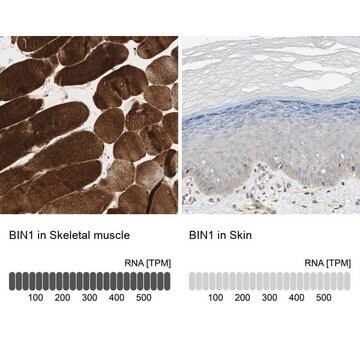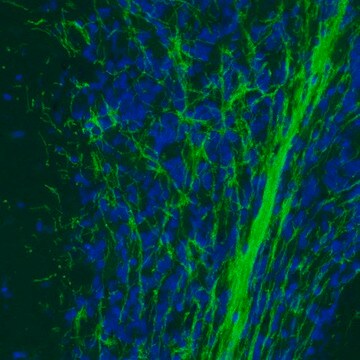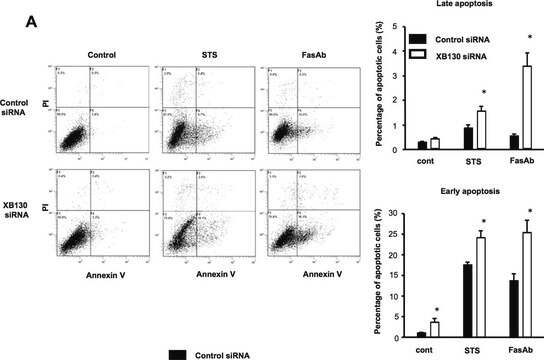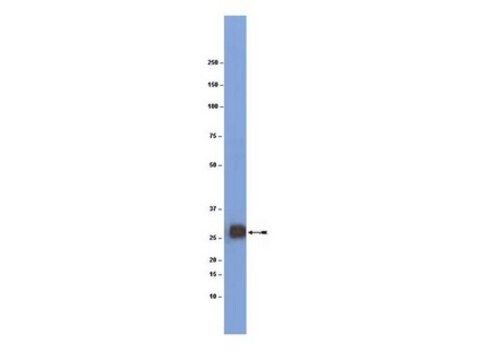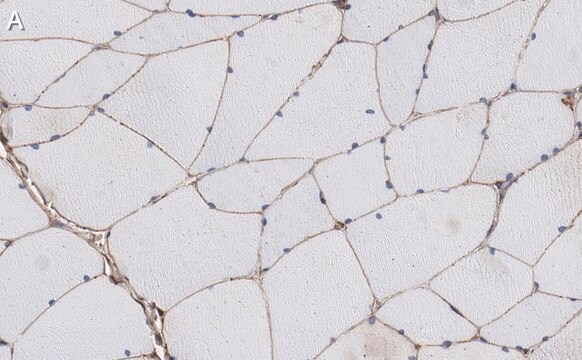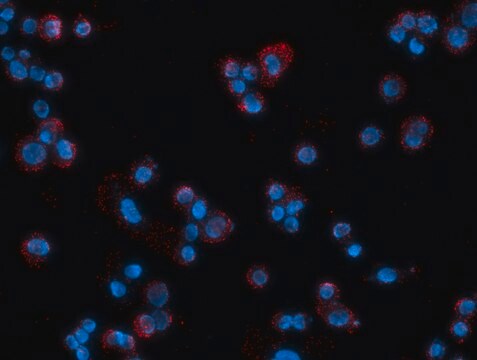SAB1408547
Anti-BIN1 antibody produced in rabbit
purified immunoglobulin, buffered aqueous solution
Synonym(s):
AMPH2, AMPHL, DKFZp547F068, MGC10367, SH3P9
About This Item
Recommended Products
biological source
rabbit
Quality Level
conjugate
unconjugated
antibody form
purified immunoglobulin
antibody product type
primary antibodies
clone
polyclonal
form
buffered aqueous solution
mol wt
antigen ~53 kDa
species reactivity
human
technique(s)
immunofluorescence: suitable
western blot: 1 μg/mL
NCBI accession no.
UniProt accession no.
shipped in
dry ice
storage temp.
−20°C
target post-translational modification
unmodified
Gene Information
human ... BIN1(274)
General description
Immunogen
Sequence
MAEMGSKGVTAGKIASNVQKKLTRAQEKVLQKLGKADETKDEQFEQCVQNFNKQLTEGTRLQKDLRTYLASVKAMHEASKKLNECLQEVYEPDWPGRDEANKIAENNDLLWMDYHQKLVDQALLTMDTYLGQFPDIKSRIAKRGRKLVDYDSARHHYESLQTAKKKDEAKIAKAEEELIKAQKVFEEMNVDLQEELPSLWNSRVGFYVNTFQSIAGLEENFHKEMSKLNQNLNDVLVGLEKQHGSNTFTVKAQPSDNAPAKGNKSPSPPDGSPAATPEIRVNHEPEPAGGATPGATLPKSPSQLRKGPPVPPPPKHTPSKEVKQEQILSLFEDTFVPEISVTTPSQPAEASEVAGGTQPAAGAQEPGETAASEAASSSLPAVVVETFPATVNGTVEGGSGAGRLDLPPGFMFKVQAQHDYTATDTDELQLKAGDVVLVIPFQNPEEQDEGWLMGVKESDWNQHKELEKCRGVFPENFTERVP
Physical form
Disclaimer
Not finding the right product?
Try our Product Selector Tool.
recommended
Storage Class Code
10 - Combustible liquids
WGK
WGK 1
Flash Point(F)
Not applicable
Flash Point(C)
Not applicable
Choose from one of the most recent versions:
Certificates of Analysis (COA)
Don't see the Right Version?
If you require a particular version, you can look up a specific certificate by the Lot or Batch number.
Already Own This Product?
Find documentation for the products that you have recently purchased in the Document Library.
Our team of scientists has experience in all areas of research including Life Science, Material Science, Chemical Synthesis, Chromatography, Analytical and many others.
Contact Technical Service